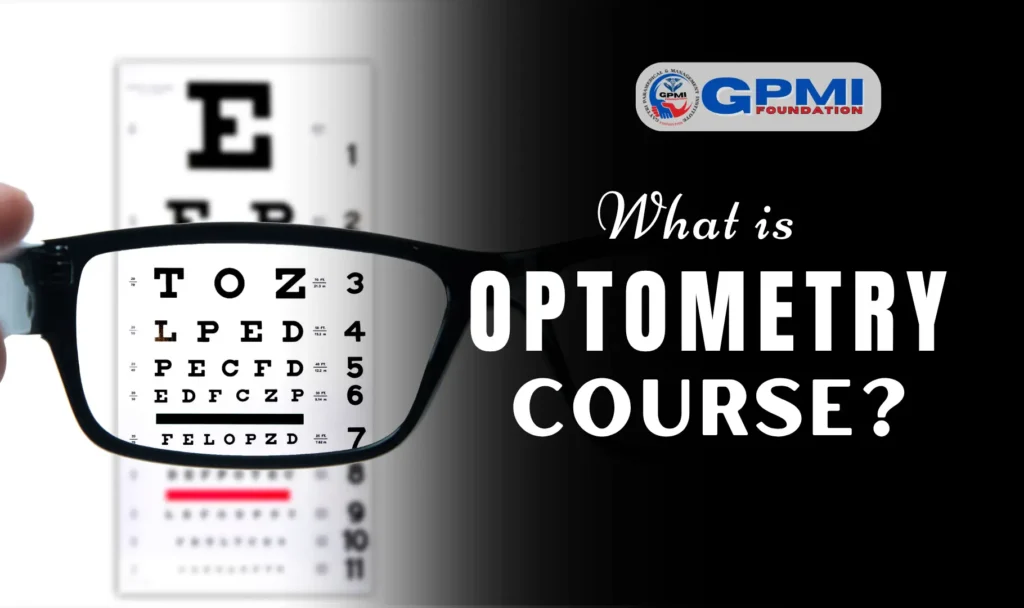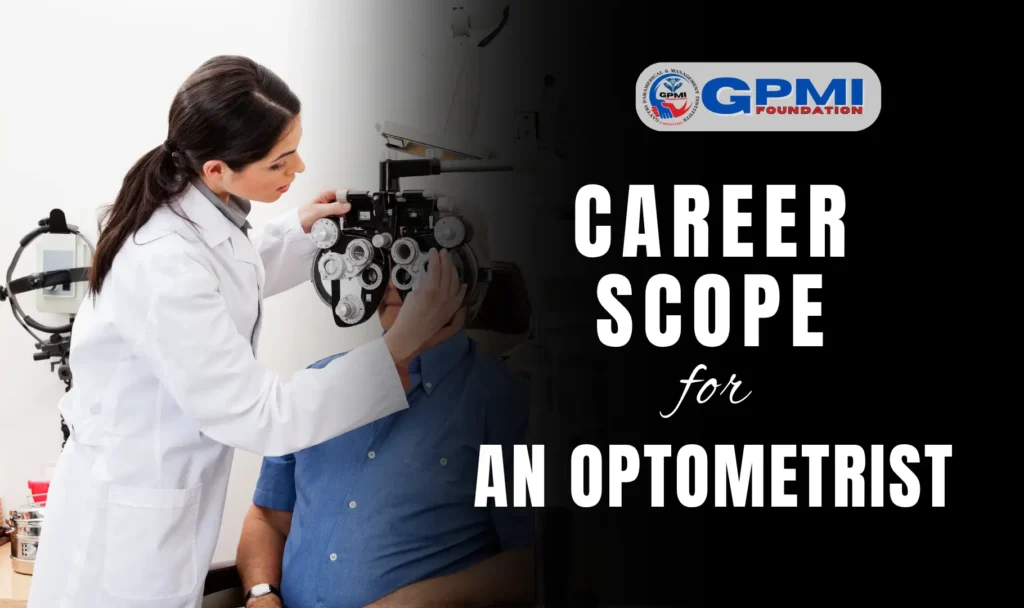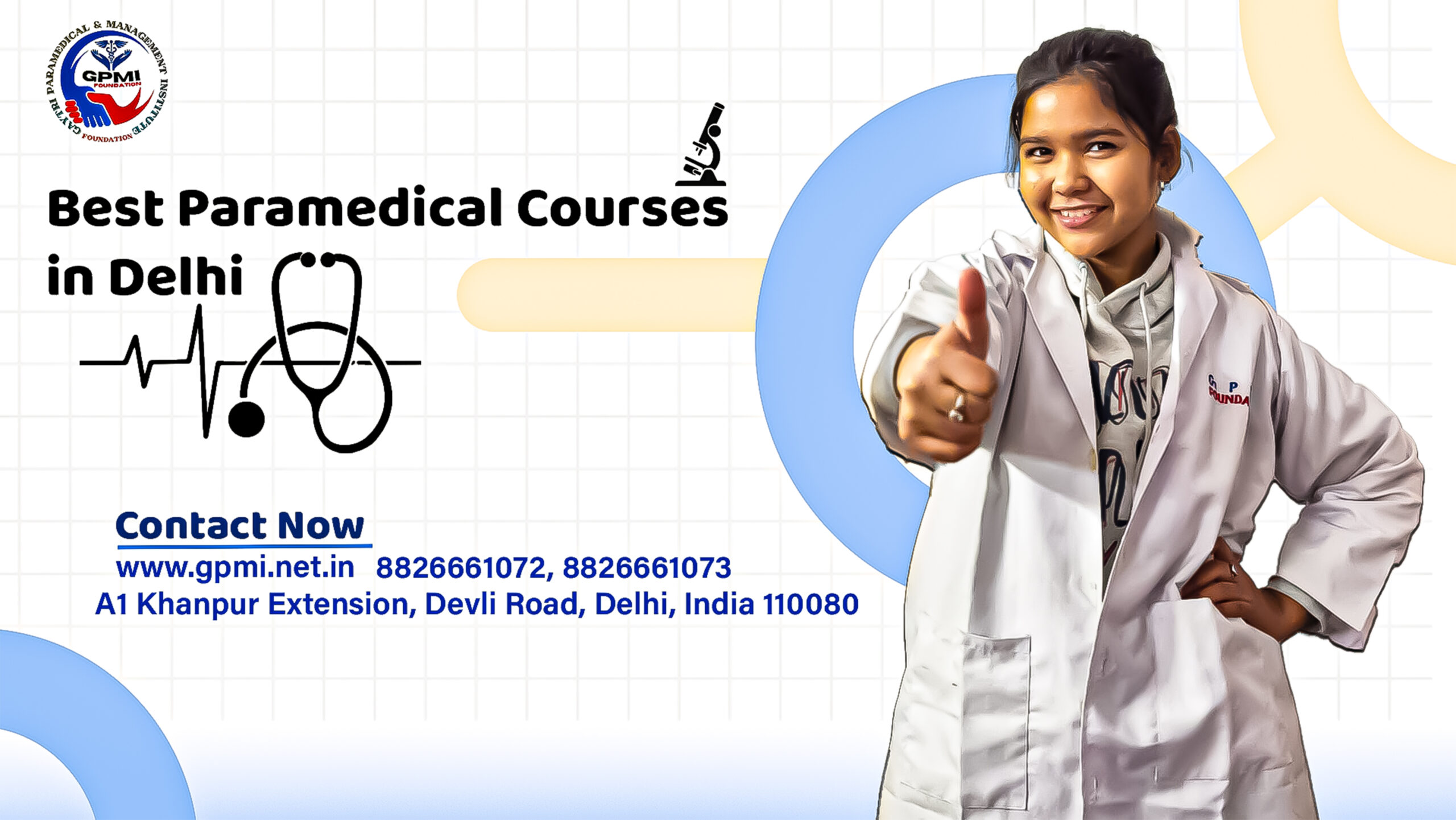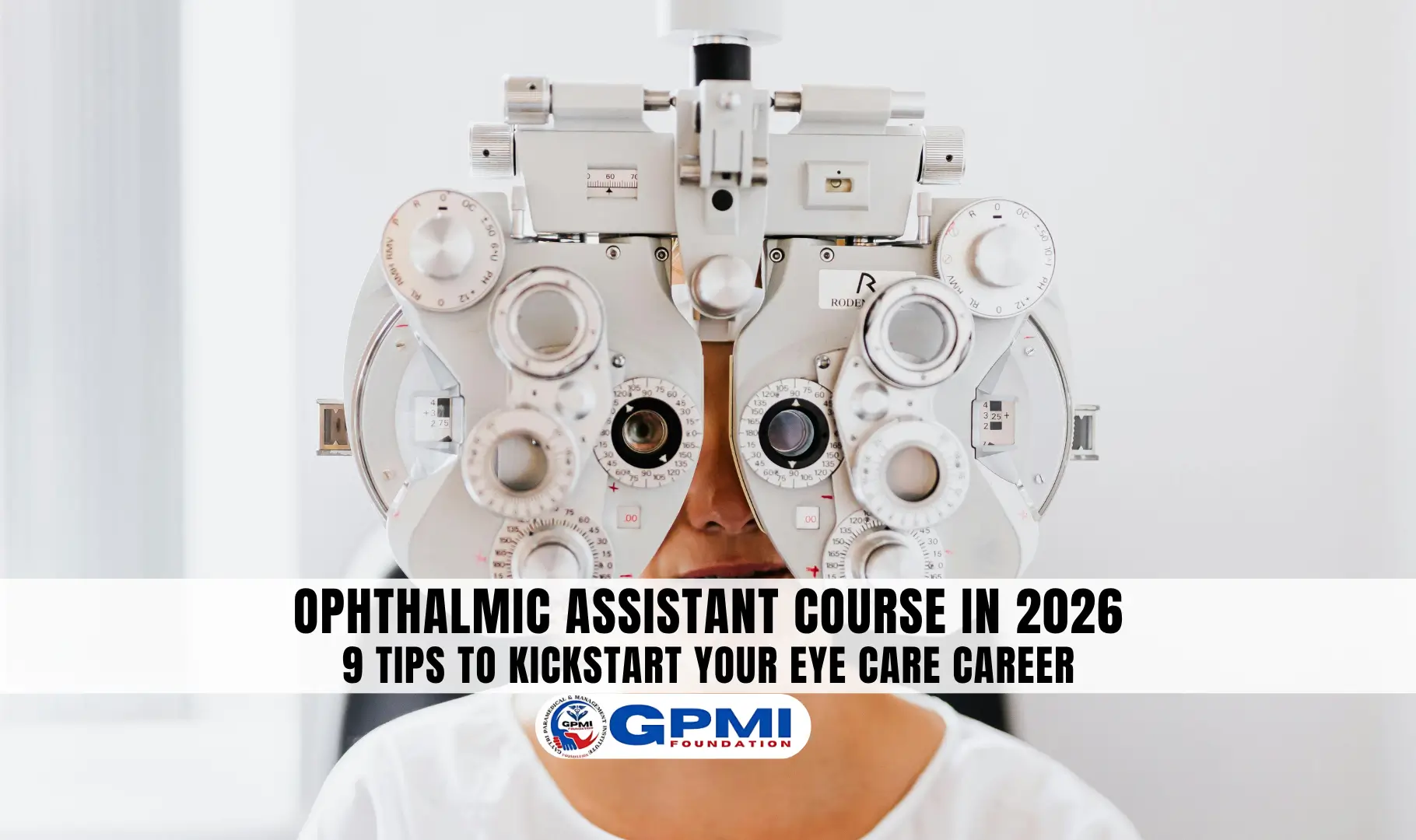Choosing the right career after 12th can be overwhelming, but if you’re interested in eye care and healthcare, optometry might be your perfect path. Optometry Course After 12th opens the door to a specialized field where science meets service, and your skills can truly change lives.
This course trains students to examine, diagnose, and manage vision problems, making them vital professionals in the healthcare system. With the increasing use of digital screens, more people suffer from eye-related issues—creating a rising demand for trained optometrists.
After completing this course, students can work in eye hospitals, optical chains, or even open their own clinics. It’s not just a job; it’s a respected and rewarding profession with real impact.
Whether you dream of becoming an eye care expert or starting your own vision care practice, optometry offers a clear and structured path. In this article, we’ll explore how to begin that journey right after 12th.
Table of Contents
What is Optometry Course?

Optometry is a healthcare profession focused on the examination, diagnosis, and treatment of vision problems and eye disorders. An Optometry course trains students to become eye care professionals known as optometrists. They learn how to perform eye tests, prescribe glasses or contact lenses, detect eye diseases, and refer patients to specialists if needed.
The course combines both theoretical knowledge and practical training, covering subjects like anatomy of the eye, optics, visual science, and eye disease management. Students also gain hands-on experience in clinics to improve their patient-handling skills.
This course is ideal for students who have passed 12th with a science background and want to build a career in the growing healthcare sector. Optometry is not just about eyesight correction—it’s about improving the quality of life for people of all ages. With rising screen time and lifestyle changes, the demand for skilled optometrists is increasing rapidly across India and abroad.
B.Voc/BSc Optometry Course Details
| Course Detail | Information |
|---|---|
| BSc Optometry Course Duration | 3 years (6 semesters) + optional 1-year internship |
| Optometry Course Eligibility | 10+2 with Science stream (Physics, Chemistry, Biology/Math) |
| Optometry Course Fees | ₹20,000 to ₹1,50,000 per year (varies by institute) |
| Optometry Course Fees in Private College | ₹60,000 to ₹1,50,000 per year |
| Optometry Course Fees in Government College | ₹10,000 to ₹50,000 per year |
| Optometry Course Salary | ₹2.5 to ₹5 LPA for freshers; higher with experience |
| Optometry Course Career Scope | Jobs in eye hospitals, clinics, optical stores, lens companies, or self-practice |
| Optometry Course Syllabus | Anatomy of the Eye, Optics, Refraction, Visual Science, Eye Diseases, Clinical Training |
B.Voc/ BSc Optometry Course Duration
- The Bachelor of Vocation (B.Voc) or Bachelor of Science (BSc) in Optometry is typically a 3-year undergraduate degree program, divided into six semesters.
- In addition to the academic coursework, many institutes also include a mandatory or optional 1-year clinical internship, making the total duration up to 4 years.
- During this period, students undergo both theoretical classes and hands-on training in vision testing, refraction, eye disease management, and the use of optical instruments in real clinical settings.
Optometry Course Eligibility
- For the B.Voc in Optometry, students must have passed 12th grade from any stream (Science, Commerce, or Arts) from a recognized board. There is no specific subject requirement, making it accessible to a wider range of students.
- For the B.Sc in Optometry, candidates must have completed 10+2 with a Science background, including Physics, Chemistry, and Biology or Mathematics, with at least 45% to 50% marks. Some colleges may also conduct entrance exams or interviews for B.Sc admissions.
Optometry Course Fees
The average fee ranges from ₹20,000 to ₹1,50,000 per year. Some institutes may charge extra for clinical training or internship. Scholarships and fee concessions may also be available for eligible students.
👉 Optometry Course Fees in Private College
Optometry course fees in private colleges typically range from ₹50,000 to ₹2,00,000 per year, depending on the college, location, and facilities. The total cost for a 3 to 4-year program may go up to ₹6,00,000. Scholarships and EMI options are available in some institutions to support eligible students.
👉 Optometry Course Fees in Government College
Optometry course fees in government colleges are generally affordable, ranging from ₹10,000 to ₹50,000 per year. The total cost for a 3 to 4-year program is usually under ₹2,00,000. Government institutions offer quality education at low fees, with additional support through scholarships and reserved category concessions.
Optometry Course Salary
After completing an optometry course, salary depends on experience, skills, and workplace. Here are the common salary trends:
- Freshers: ₹15,000 to ₹25,000 per month in clinics, hospitals, or optical stores.
- With 2-3 years of experience: ₹30,000 to ₹40,000 per month.
- Senior Optometrists (5+ years): ₹50,000 to ₹80,000 per month, especially in top hospitals or private practices.
- Self-employed/Clinic Owners: Income can go up to ₹1,00,000+ per month depending on clientele.
- Corporate Jobs (optical chains/brands): ₹25,000 to ₹60,000 per month with performance incentives.
- Teaching/Research Roles: ₹30,000 to ₹50,000 per month in educational institutions.
- Overseas Jobs: Optometrists can earn ₹1,00,000 to ₹2,00,000+ per month after qualifying local licensing exams.
With growing demand for eye care, salary and career growth in optometry are steadily rising.
Career Scope for An Optometrist

Optometry is a rewarding and growing field in the healthcare sector. An optometrist plays a vital role in diagnosing and managing vision problems, prescribing glasses or contact lenses, and detecting eye-related health issues.
With the rise in digital screen usage and lifestyle changes, the demand for eye care services is increasing, which opens up a wide range of career opportunities for optometrists.
After completing a degree or diploma in optometry, students can work in various settings:
- Eye Hospitals and Clinics – Optometrists are employed in hospitals, eye care centers, and multi-specialty clinics to assist ophthalmologists and provide primary vision care.
- Optical Retail Chains – Many national and international optical brands hire optometrists to test eyes, recommend lenses, and manage customer care.
- Private Practice – With experience, optometrists can open their own clinic and earn well through private consultations and optical product sales.
- Research and Teaching – Those interested in academics can work as lecturers or researchers in optometry colleges and universities.
- Corporate Sector – Companies in the eyewear industry hire optometrists for product development, quality control, and training.
- NGOs and Government Programs – Optometrists are needed in rural and public health programs to provide basic vision care.
- Opportunities Abroad – With proper licensing, optometrists can work in countries like the USA, UK, Australia, and Canada, where the profession is highly respected and well-paid.
In short, the career scope for an optometrist is vast and stable. It offers both job satisfaction and financial growth. As awareness about eye health grows, the future for skilled optometrists looks bright and full of opportunities.
Further Study Courses
After completing a degree or diploma in Optometry, students can pursue several higher education or specialization courses to deepen their knowledge, enhance their skills, or open up new career opportunities. Here’s a list of further study courses after Optometry:
Postgraduate Courses
- M.Optom (Master of Optometry)
- Duration: 2 years
- Advanced study of vision science, clinical procedures, and research.
- Ideal for those interested in teaching, research, or clinical specialization.
- PG Diploma in Clinical Optometry
- Duration: 1 year
- Offers hands-on experience in advanced eye care practices.
- Good for building practical clinical expertise.
- PG Diploma in Vision Therapy / Orthoptics
- Specialization in treating binocular vision problems like squint, lazy eye, etc.
- Useful for working in pediatric or neuro-optometry.
- PG Diploma in Contact Lens Fitting and Management
- Focuses on contact lens science and fitting techniques.
- Good for those planning to work in optical retail or lens companies.
Specialization Certificates & Short-Term Courses
- Certificate Course in Low Vision & Rehabilitation
- Focuses on helping partially sighted or blind patients.
- Useful for working in NGOs or rehabilitation centers.
- Certificate in Pediatric Optometry
- Specialization in children’s eye care.
- High demand in both clinics and hospitals.
- Fellowship in Optometry Specialties (e.g., Retina, Glaucoma, Contact Lenses)
- Hands-on experience and mentorship-based training.
- Clinical Research / Medical Writing Courses
- Good for those interested in research, pharma industry, or writing scientific papers.
International Study Options
- OD (Doctor of Optometry) – USA, Canada
- Professional doctorate program.
- Needed if planning to practice in countries like the US or Canada.
- MSc in Vision Science / Public Health in Eye Care – UK, Australia
- Focus on research or public health-based eye care services.
10 Best Optometry Colleges in Delhi

Delhi is home to some of the best optometry colleges in India, offering quality education and excellent career opportunities. These colleges provide modern training, expert faculty, and clinical exposure. So here we list the top 10 optometry colleges in Delhi to help you choose the right institute.
| College Name | Description |
|---|---|
| AIIMS Delhi (All India Institute of Medical Sciences) | AIIMS is India’s premier medical institute offering excellent optometry training under expert guidance. With modern labs, hospital-based clinical exposure, and advanced research facilities, AIIMS provides a solid foundation for a successful optometry career. Admission is competitive and based on national-level entrance exams. |
| Jamia Hamdard University | Jamia Hamdard offers a Bachelor in Optometry with updated curriculum, practical training, and strong placement support. The university provides a mix of theory and hands-on clinical practice at its hospital. Known for affordable fees and quality education, it’s a top choice for optometry students in Delhi. |
| Amity University, Noida (Delhi NCR) | Amity offers a well-structured B.Optom course with high-end labs, industry exposure, and modern teaching methods. The university focuses on holistic development, including soft skills and internships. With strong placement records and global tie-ups, Amity is ideal for students seeking a blend of academics and career support. |
| Delhi Institute of Paramedical & Technology (DIPT) | DIPT provides diploma and degree courses in optometry with focus on practical skills and hospital training. The institute is known for its affordability and accessible location. It aims to prepare students for jobs in eye hospitals, optical centers, and private practice with hands-on learning experiences. |
| Institute of Public Health and Hygiene (IPH&H), Delhi | IPH&H offers a Bachelor in Optometry program with an emphasis on real-world skills, eye care techniques, and community outreach. The college has tie-ups with hospitals for internships and placements. It’s a recognized institute under various health education boards, offering good value for money and practical exposure. |
| SGT University, Gurgaon (near Delhi) | SGT University offers B.Optom and M.Optom programs with strong academic support, clinical training, and research facilities. The university campus includes a multi-specialty hospital where students gain real-time patient experience. It promotes innovation and provides career support through industry interaction and placement cells. |
| Lingaya’s Vidyapeeth, Faridabad (Delhi NCR) | Lingaya’s offers a B.Optom course under UGC-recognized programs. The curriculum covers theoretical knowledge and clinical practice, with experienced faculty guiding students in modern labs. The university focuses on employability and regularly conducts workshops and seminars to keep students industry-ready. |
| Vardhman Mahavir Medical College (VMMC) & Safdarjung Hospital | VMMC, in association with Safdarjung Hospital, offers hands-on training in optometry. Students learn directly from doctors and ophthalmologists in a hospital setting, ensuring practical knowledge and patient care skills. The institute is government-funded and offers affordable, high-quality education in the heart of Delhi. |
| Gaytri Paramedical & Management Institute (GPMI), Delhi | GPMI offers BSc/ B.Voc in Optometry with UGC-recognized University. The course includes a strong practical component, modern labs, and industry-relevant curriculum. GPMI prepares students for careers in eye hospitals, clinics, and optical chains through hands-on training and personalized academic support. |
| Tech Mahindra SMART Academy for Healthcare, Delhi | Tech Mahindra’s SMART Academy provides short- and long-term optometry courses with industry-relevant training. Backed by the Tech Mahindra Foundation, the academy combines classroom teaching with practical sessions. It prepares students for direct employment in optical retail chains, hospitals, and clinics with strong placement assistance. |
Conclusion
Choosing an optometry course after 12th is a smart step toward a secure and respected healthcare career. As an optometrist, you play a vital role in improving people’s lives by protecting their vision and eye health.
The course not only provides strong clinical and technical knowledge but also opens doors to diverse job opportunities in hospitals, private clinics, optical chains, and even abroad.
With the increasing demand for eye care professionals due to screen time and aging populations, skilled optometrists are more needed than ever. Whether you want a stable job, start your own clinic, or grow in research and academics, optometry offers a clear and promising path.
If you are a science student with a passion for healthcare and helping others, this course can give you a meaningful career, personal satisfaction, and long-term growth in a high-demand field.
Frequently Asked Question
If you’re planning a career in optometry and have questions about the course, we’ve listed some frequently asked questions (FAQs) below to help you make an informed decision.
Is optometrist a doctor degree?
No, an optometrist is not a medical doctor (MBBS), but they are trained eye care professionals who hold a degree like Bachelor of Optometry (B.Optom). They can examine eyes, prescribe glasses or contact lenses, and detect eye problems, but they cannot perform surgeries like ophthalmologists (eye surgeons).
Does Optometry need NEET?
No, Optometry does not require NEET (National Eligibility cum Entrance Test). Admission to optometry courses like Bachelor of Optometry (B.Optom) or B.Voc in Optometry is usually done directly or through college-level entrance tests. NEET is only required for courses like MBBS, BDS, and other medical degrees — not for optometry.
Can I use Dr. After B optometry?
No, you cannot use “Dr.” after B.Optometry. A Bachelor of Optometry (B.Optom) is an undergraduate degree, and graduates are called Optometrists, not medical doctors. Only those who hold MBBS, BDS, or a PhD are legally allowed to use the title “Dr.” before their name in India.
Which is better B Pharm or Optometry?
Both B.Pharm (Bachelor of Pharmacy) and Optometry are good career options, but the better choice depends on your interest and career goals. Here’s a simple comparison:
✅ Choose B.Pharm if you:
- Are interested in medicine, drug development, and pharma industry
- Want to work in pharmaceutical companies, drug research, or become a pharmacist
- Prefer a lab-based or regulatory role over clinical practice
✅ Choose Optometry if you:
- Are interested in eye care, vision testing, and clinical practice
- Want to work with patients in hospitals, clinics, or optical chains
- Like direct interaction and helping people improve their vision
Is Optometry a good career for girls?
Yes, Optometry is a very good career for girls. Here’s why:
- Safe and professional work environment – Most jobs are in clinics, hospitals, or optical stores.
- Good work-life balance – Fixed working hours with minimal emergency duties.
- High demand – Increasing eye problems mean more job opportunities.
- Career growth – You can become a senior optometrist, open your own clinic, or pursue higher studies.
- Respected profession – You help improve people’s vision and lives.
Overall, optometry offers stability, flexibility, and dignity, making it a smart choice for girls.
Can I open my own clinic after BSc Optometry?
Yes, you can open your own eye care clinic after B.Sc. Optometry. But You cannot perform eye surgeries (only ophthalmologists can)







